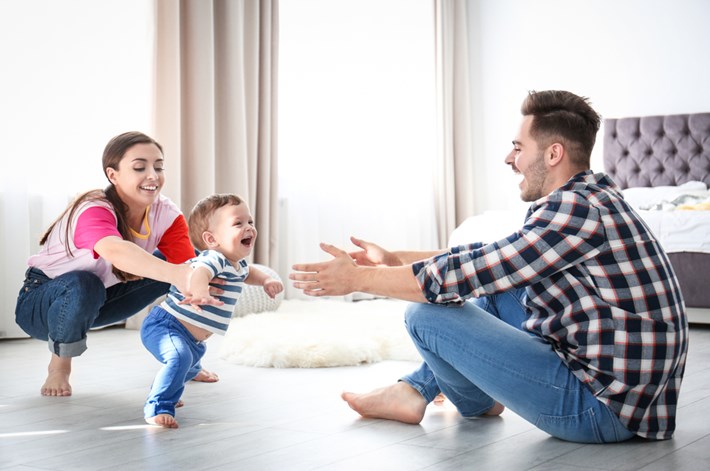Right from birth, our children learn by exploring and playing in stimulating and safe environments. Their key relationships help them think, learn problem-solving skills, and communication. This learning happens when they actively engage with their environment and trying different activities. Let’s take a detailed look at how children learn in their early years:
Learning During Early Years
When a baby emerges from the mother’s womb, opens its eyes and starts crying, its learning begins as if it is programmed to learn. Its brainpower keeps increasing with constant use. A child learns faster in a conducive environment that offers various ways to play and learn – the more the opportunities to practice, better the learning.
Infants and young children always learn quickly in a warm and stimulating environment, coupled with a loving relationship with their parents, babysitters, and other people they regularly come in contact with. These relationships play a critical role in a child’s learning in their early years. As a parent, you remain the primary teacher for your child and she will keep learning from you over the years.
Different Ways in Which Babies & Young Children Learn
Your child learns through daily social interactions and play; by exploring new things and absorbing experiences in the stimulating environment, you provide. The foundation of a child’s learning and behaviour is laid through evolving relationships with their family and caretakers.
The child develops social skills such as communicating, interacting, thinking, and problem-solving during this rapid phase of healthy learning and development through play as well as interaction with people around them. You play an important role in creating an engaging and supportive environment for your child, and he will learn readily in such an environment. The learning covers:
- Making sounds, hearing sounds and singing
- Stimulation of the senses through play, eating, seeing, listening, smelling, tasting, and touching.
- Observing the surroundings, including people and things.
- Experimenting with materials, objects, and textures like water, soil, and dirt
- Discovering and learning by handling things, shaking and turning them.
- Asking questions.
You will be surprised by the amazing amount of learning your child does on her own. This is reflected in activities such as:
- Selecting toys and objects to play with
- Choosing a book to read or look at
- Looking at pictures in books
- Selecting what they want to eat
- Picking out foods for meals
Support and Encouragement Matter
It is critical to provide your child with various opportunities and ways to engage in different activities to select, practice, and learn. You can find out what your child’s likes and dislikes are by exposing him to indoor and outdoor as well as structured and unstructured activities.
You play a vital role in supporting his learning. Self-learning plays a crucial role in developing a child’s creative faculties and keeps her interested in what she is doing. Your child needs to learn on her own, even by making mistakes. You should extend support only when she looks to you for support or when you feel she needs some encouragement to take the next step. A few words of encouragement go a long way in building a child’s self-confidence in handling and learning things.
The love and support that your child receives from you and the rest of your family members are what gives her the confidence to interact with people around her. Learning is a constant process, and it also means that your child would need constant support and encouragement to learn and communicate well.
If you want to know more about our baby program at Clovel Childcare and Early Learning Centres, don’t hesitate to get in touch with us. Just give us a call at 1300 863 986 or fill in this contact us form.
Thanks for reading,
Clovel Childcare
1300 863 986












